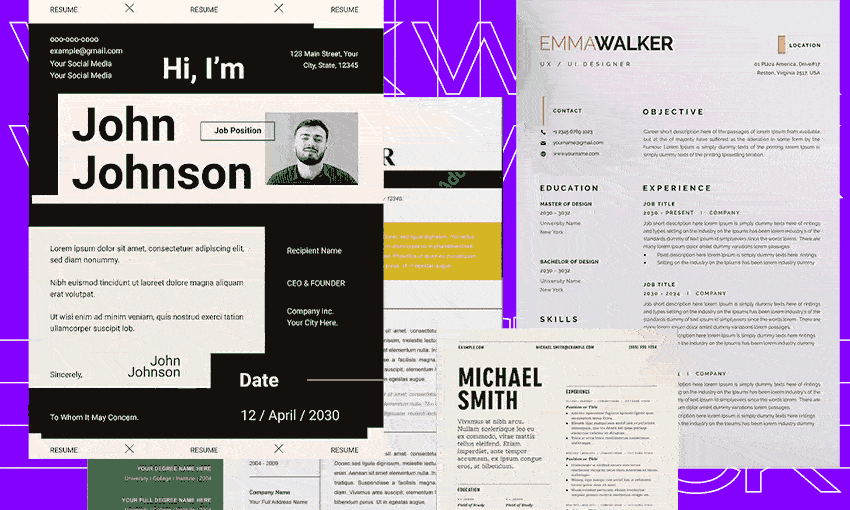According to a recruitment expert, the skills shortage is still having a big impact on our job market. So is now a good time to be shopping around for a new gig?
Switching to a new job is rarely a decision taken lightly. Often it means adapting to a new environment, new staff, and a whole new way of doing things that simply takes time and effort to adjust. But a new job can also mean more money, a fresh challenge, a much-needed change, and a chance to gain new knowledge and skills – opportunities many New Zealanders are increasingly willing to explore.
According to Trade Me Jobs data, the average number of job applications per listing has been on the up, increasing by 38% in the December quarter compared to the year prior. It’s the second quarter in a row the average number of job applications on the site has increased, with the previous quarter seeing a 9% increase year-on-year.
Regionally, Gisborne (+58%), Hawke’s Bay (+56%), the West Coast (+53%), and Auckland (+50%) saw the biggest jumps in applications. This increase was also evident across all sectors, with the site’s largest sector – trades & services – seeing a 55% increase this most recent quarter.
“At the moment, we’ve got a lot more candidate applications and a lot more people willing to apply. There’s also a lot more confidence about leaving and exploring the job market as well,” says Jessica Cree, senior recruitment consultant at Source and Select Recruitment.
“While there’s always people looking for jobs, I think last year everyone was sitting on their hands a bit and just waiting and seeing if there was maybe going to be another lockdown, or seeing what was going to happen with the economy.”
With Covid-19 still at the forefront of people’s minds in late 2021, and Omicron making its first appearance on our shores in December that year, it’s no surprise few were looking to dive into an uncertain market. Now, after years of pandemic-fuelled uncertainty, New Zealanders are “making the most of the current market conditions, including record-breaking salaries and strong demand from employers,” says Trade Me Jobs spokesperson Patrick Cairns.
In the last three months of 2022, the national average salary reached an all-time high of $67,562. The biggest pay increase was seen in hospitality and tourism, with the average salary up 9% year-on-year to a new high of $58,994, followed by the engineering sector whose average salary grew 8% to $87,571.
The main reason for these record-breaking salaries is that despite the increase in people applying for jobs, businesses are continuing to compete for workers due to the shortage of skilled talent in the market.
“We’re seeing shortages in pretty much every single industry and at every single level, from hospo to retail, corporate to blue collar, and senior to lower level. These shortages are right across the board,” says Cree.
“There’s less talent on the market, so to get people over, many employers are having to rebudget their business and pay above market rates. On top of that, candidate expectations are higher, so they’re looking for more money.”
While hustling for a bigger paycheck is nothing new, the crippling effects of soaring inflation and rising interest rates are pushing many New Zealanders to seek out more than usual. According to data from Stats NZ, the cost of living for the average household increased by 8.2% last year, with higher prices for housing, food and transport serving as the main contributors.
But while record-high salaries sound tempting enough for employees to jump ship elsewhere, it’s worth keeping in mind that the rate of salary growth is already showing signs of slowing down. And with high inflation and interest rates many economic forecasters are predicting a recession in the latter half of 2023, so it won’t be long before the jobs market sees a few more shake ups.
“It’s difficult to say what might happen in the jobs market if we were to enter a recession as it’s in a completely different shape from what we saw in previous periods of economic uncertainty,” says Cairns.
“We tend to see some reluctance to hire when the economic outlook is uncertain, particularly from those small to medium-sized businesses that are often the most impacted.”
“However, we know skill shortages are still a massive problem for employers looking to hire and as a result, demand for talent remains sky high.”
Starting a new job can be as thrilling as it is nerve-wracking, and despite some looming uncertainties with the economy, it’s clear many New Zealanders are looking to switch things up. With thousands of New Zealanders already applying and interviewing for roles, the most important thing for applicants to remember is “to do your research” and be prepared, says Cree.
“Know your market, know your worth, and be realistic. Just because you’re going for a new job doesn’t mean you’re necessarily going to get a lot more money. You’ve got to have that value behind you.”

